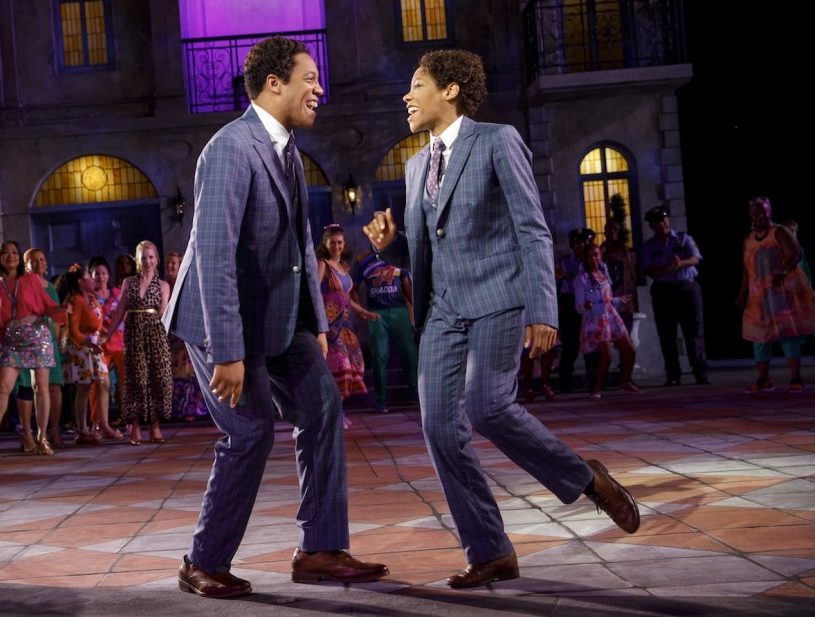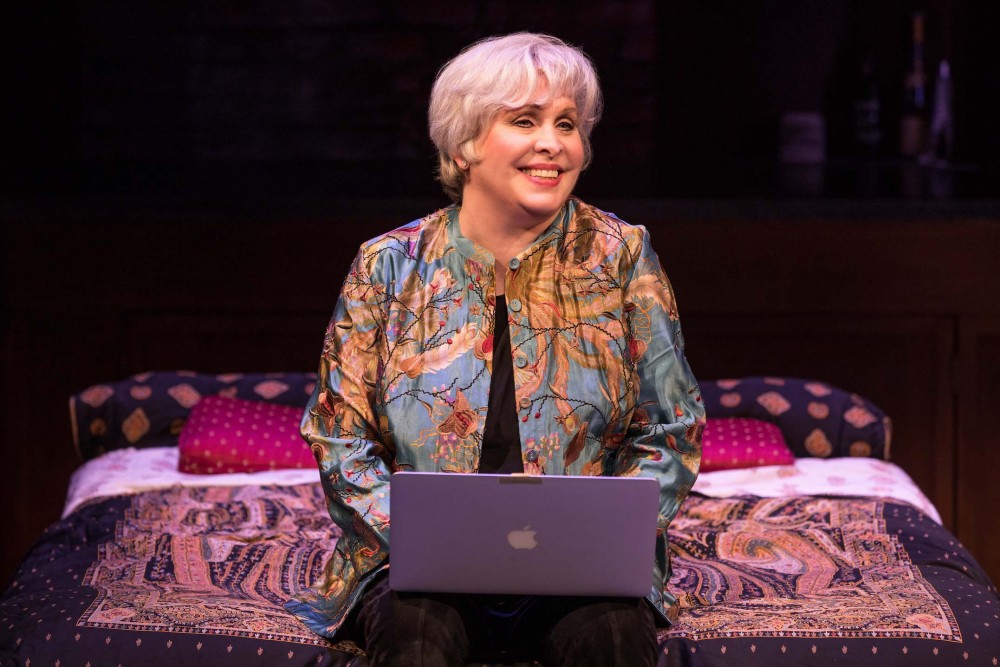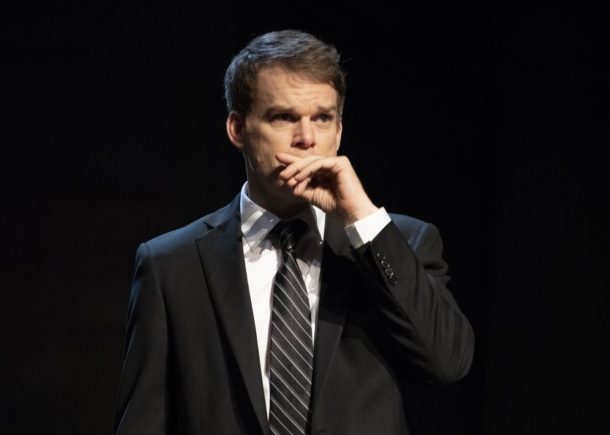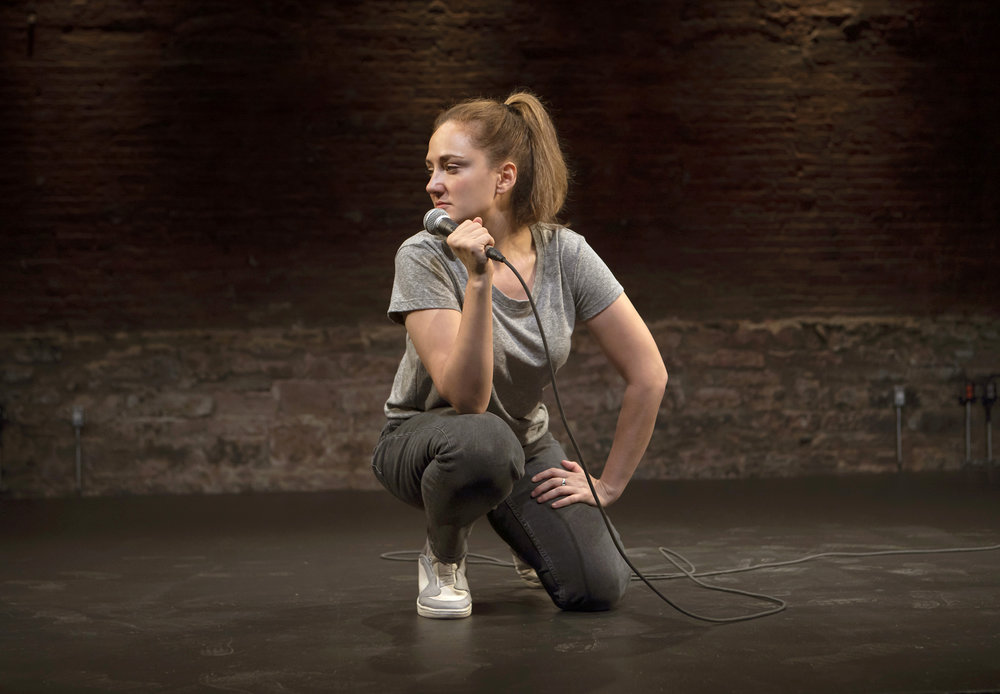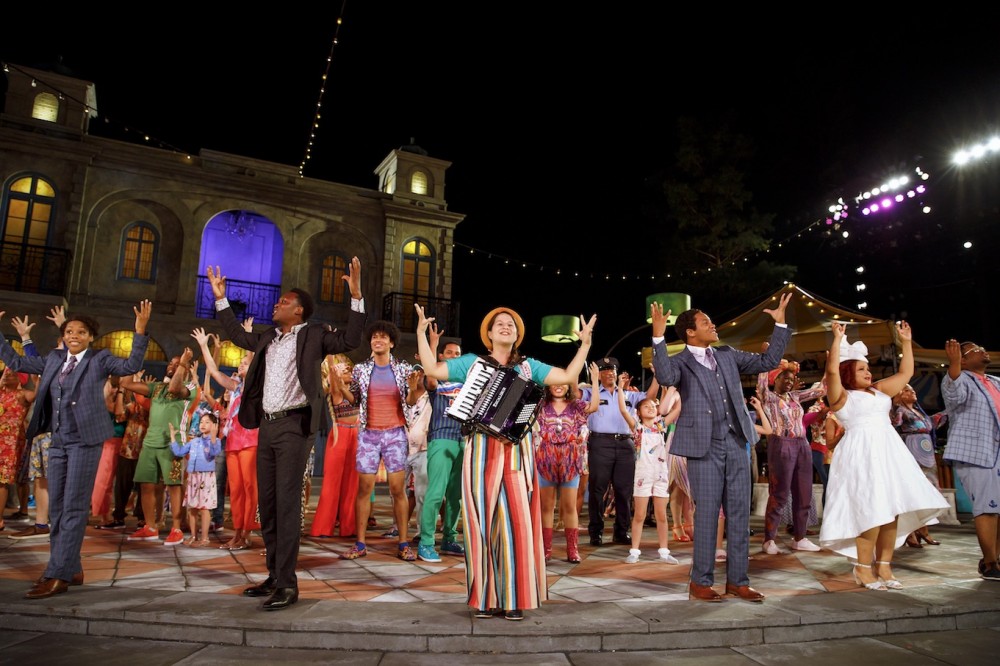
Front row: Nikki M. James (Viola/Cesario), Ato Blankson-Wood (Orsino), Shaina Taub (Feste), Troy Anthony (Sebastian), Nanya-Akuki Goodrich (Olivia), Daniel Hall (Sir Andrew)
by JK Clarke
To call the second Shakespeare in the Park production of this summer “Twelfth Night,” referring to the William Shakespeare play of the same name, is a little misleading. The production, while more or less maintaining the original play’s storyline, contains only a soupçon of its text, perhaps as low as twenty percent. However, that doesn’t keep this Public Works production from being an entertaining lark in the park, a perfect opportunity for locals and tourists to spend a free evening at the Delacorte in Central Park enjoying a beautifully produced musical with an enormous cast, wonderfully culled from community centers of the City’s five boroughs.
For the past five years the Public’s “Public Works” program has rolled out musical productions over Labor Day weekend ever summer, closing out the season in as festive a way as possible. But this year they’ve re-tooled the acclaimed 2016 production—a collaboration of Director Kwame Kwei Armah (who’s just been appointed artistic director of London’s Young Vic Theatre) and Shaina Taub (who wrote the music and lyrics of the numbers and plays a fun Feste the Clown, as well), the Public’s multi-talented rising star. (Will they also have an additional Labor Day weekend Public Works offering? It was fast becoming a welcome tradition.)
Though a handful of Shakespeare purists might bemoan the deviation from the original text, Taub’s Twelfth Night (for it is probably more hers than anyone else’s) is very much in the spirit Shakespeare intended. In Christian lore, the titular “twelfth night” is the last night of the Epiphany, marking the arrival of the Magi (the three wise men). It was traditionally (and even so in Pagan times) a day of Carnival-esque revelry, marking the last day before everyone has to return to their labors and the new season. So, Taub’s musical celebration of the story of a cross-dressed shipwreck survivor wooing a countess on her master’s behalf is, as it should be, a celebratory free-for-all.
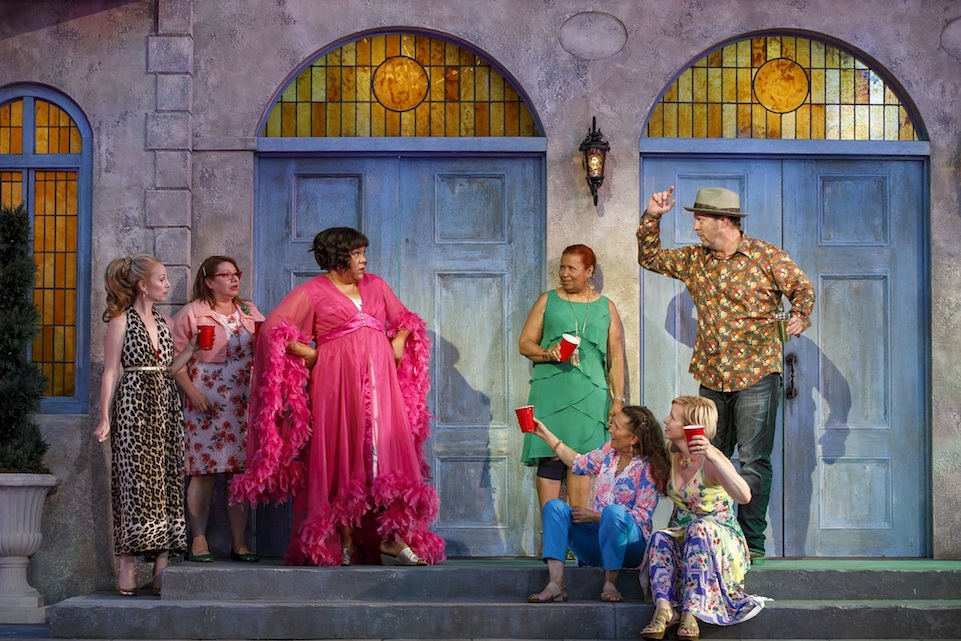

Lori Brown-Niang (Maria – pink gown), Shuler Hensley (Sir Toby Belch – hat)
What sets the Public Works productions aside from any other you’ll ever see is that The Public Theater, under the enlightened and innovative artistic direction of Oskar Eustis (who also co-directs this production) has partnered with New York City community groups like The Center for Family Life in Sunset Park to the Military Resilience Foundation to Children’s Aid and countless others, holding workshops in acting, dancing and singing and casting members—some of whom had never before set foot on a stage—in the play. To that end, at any moment of the production there are well over 100 people on stage, creating not only a more festive atmosphere, but a more realistic feeling of a story unfolding in a real town—this mythical Illyria. As was Elizabethan fashion, cast members wander through the audience prior to curtain, asking “have you visited Illyria before?” and engaging in conversations about the town and its people. And pre-show, the stage itself is populated with popcorn vendors and portrait artists, with audience members welcomed onstage to partake.The ensuing performance is impressive not just in its ability to make order of the seeming chaos, but in the sense of community and excitement created by the all-inclusive (including some dialog simultaneously communicated in American Sign Language) atmosphere.
Taub’s accessible, upbeat and beautifully orchestrated, jaunty numbers—some feeling Brechtian, others jazzy, and still others with contemporary echoes from Lin Manuel Miranda to Suzanne Vega—are made all the better by a delightful primary cast. The shipwrecked twins, Viola (Nikki M. James) and Sebastian (Troy Anthony) really do seem like twins, thanks in part to Andrea Hood’s delightful Prohibition-era three piece-blue checkered suits and Cookie Jordan’s on-the-money hair design. But, even more, their on-stage chemistry makes them feel like actual siblings, a necessary but not always present component of Twelfth Night productions. Nanya-Akuki Goodrich’s effusive, society-lady Olivia is a delight, as well, particularly at her comical entrances, in which trailed by a trio of musicians (trumpet, trombone and saxophone) who play her on.
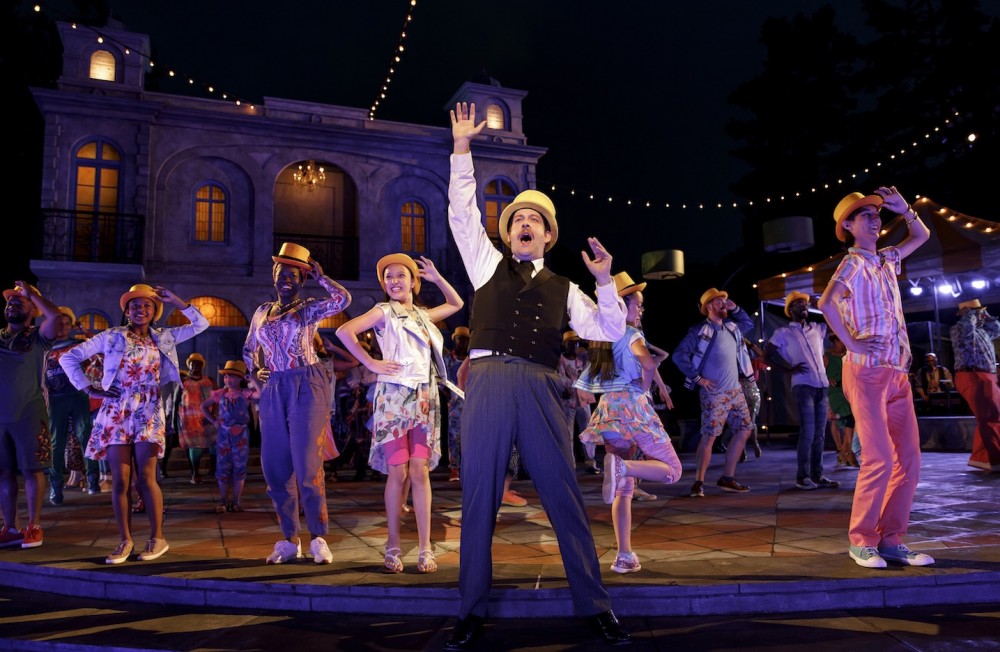

Andrew Kober (Malvolio)
Andrew Kober’s Malvolio is a refreshing take on the character, an uptight Englishman who resembles Faulty Towers-era John Cleese more than a little. Yes, he’s stiff and stern, but he clearly has desires—he thinks it’s for the greatness that Olivia can provide him. But Taub and/or co-director Oskar Eustis make a subtle, but revolutionary stage direction at the end of the play, romantically pairing the dejected and enraged Malvolio (who has been jailed in fetid port-a-potty, an amusing touch), with the equally off-put Antonio (who has just discovered the young man he has designs on has married Countess Olivia). The move solves two threads that traditionally frustrate the end of Twelfth Night, which is otherwise joyous, save for the implied fates of these two. So, it’s a move that allows everyone to end the play happy and in love, perfectly in keeping with the spirit of this production.
This Public Works production of Twelfth Night really puts the “community”—quite literally almost all of it—in community theater. It’s a fun, easy event that not only introduces Shakespeare to all comers, but provides a light-hearted evening of music and laughs at a time when it is most welcome and needed—which is exactly what this type of theater is supposed to do.
Twelfth Night. Through August 19 at The Delacorte Theater (In Central Park, at West 81st Street and Central Park West). Ninety minutes, no intermission. www.publictheater.org
Photos: Joan Marcus


